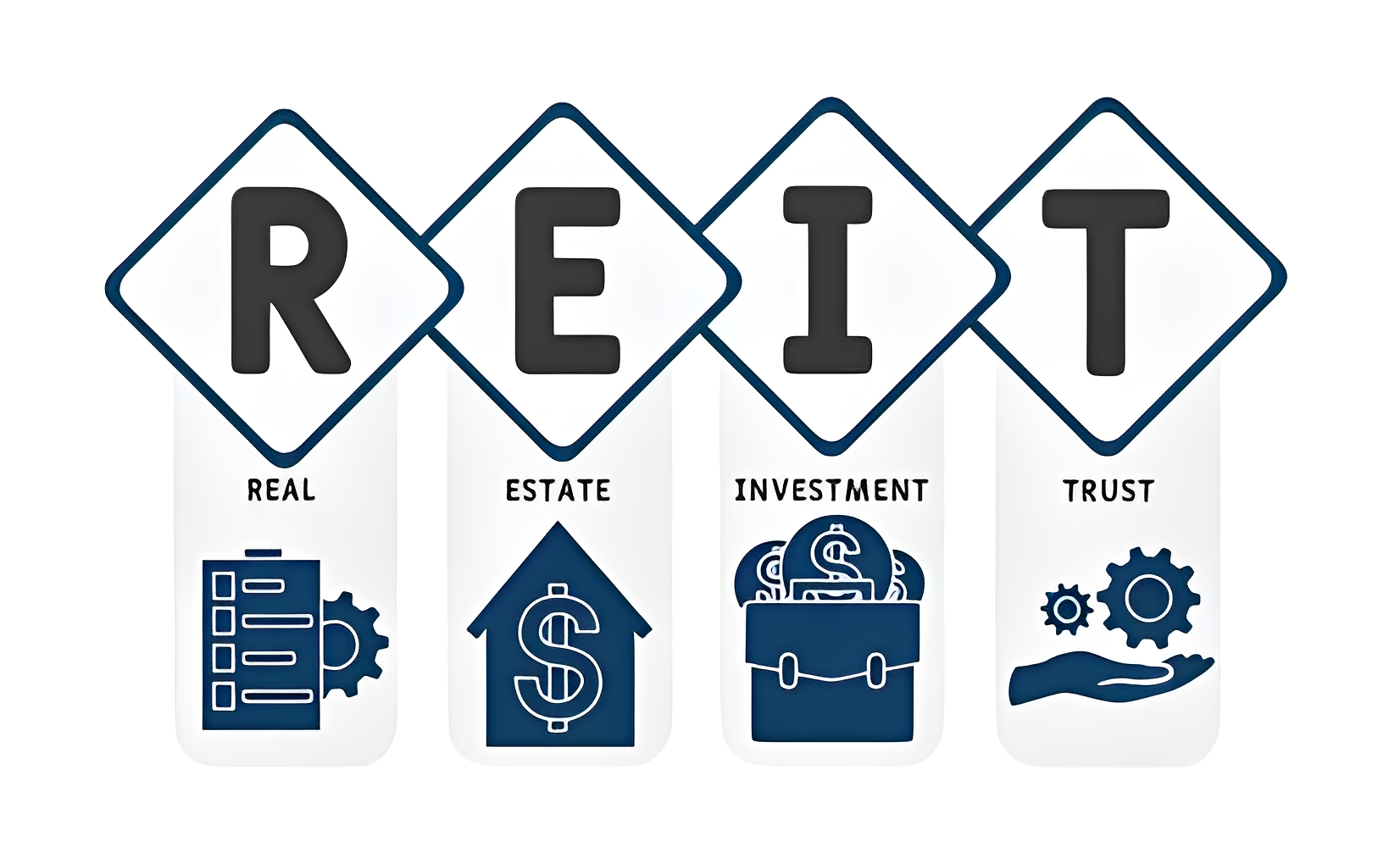If you are interested in investing in the real estate sector in India, but don’t want to deal with the hassles of buying and managing physical properties, you may consider investing in REITs or Real Estate Investment Trusts. REITs are companies that own, operate, or finance income-generating real estate assets such as office spaces, malls, hotels, warehouses, etc. REITs offer investors a way to participate in the real estate market by buying units or shares of the REIT, similar to buying shares of a company. REITs distribute most of their income to the unit holders or shareholders as dividends, and also offer capital appreciation potential.
How They Work : But how do REITs work? What are the mechanics behind their structure, listing, investment, valuation, and distribution? In this article, we will explain the mechanics of REITs: how they work, and what are the benefits and risks of investing in them.
Structure of REITs: How They Work
A REIT is a special type of company that is registered with the Securities and Exchange Board of India (SEBI), which is the regulator for the REITs in India. A REIT must have a two-tier structure, consisting of the REIT at the top level, and the special purpose vehicles (SPVs) at the lower level. The REIT must hold at least 51% of the equity share capital or interest in the SPVs, which in turn must hold the real estate assets. The REIT may also invest directly in real estate assets, subject to certain conditions.
The REIT is managed by a board of directors, who are appointed by the sponsor of the REIT. The sponsor is the person who forms the REIT and transfers the property owned by them to the trust. The sponsor must have a minimum net worth of Rs. 100 crore, and a minimum of 5 years of experience in the real estate industry. The sponsor must also hold at least 25% of the REIT units for at least 3 years after listing, and at least 15% thereafter.
The REIT also appoints a trustee, who is an independent entity that holds the assets on behalf of the unit holders or shareholders. The trustee ensures that the REIT complies with the rules and regulations of SEBI, and protects the interests of the investors. The trustee also appoints a manager, who is responsible for making investment decisions and managing the REIT assets. The manager is typically a private company closely held by the sponsor.
The REIT also appoints an independent valuer, who values the REIT assets at least once a year, and discloses the net asset value (NAV) of the REIT at least twice a year. The valuation of the assets must be done as per the International Valuation Standards or any other standards as specified by SEBI. Additionally, the REIT may appoint auditors, registrar and transfer agents, merchant bankers, and custodians, to carry out activities incidental to the operation of the REIT and meet the requirements of law.
Listing of REITs: How They Work
A REIT must be listed on a recognized stock exchange, and must raise funds through an initial public offering (IPO) or a follow-on public offer (FPO). The minimum subscription amount for the IPO or FPO must be Rs. 50,000, and the minimum trading lot must be Rs. 1 lakh. The REIT must also comply with the listing and disclosure norms prescribed by SEBI and the stock exchanges.
The listing of the REIT provides liquidity and transparency for the investors, as they can buy and sell the units or shares of the REIT easily and quickly on the stock exchanges. The listing also enhances the credibility and visibility of the REIT, as it attracts more investors and tenants to the REIT properties.
Investment of REITs: How They Work
A REIT must invest at least 80% of its assets in completed and income-generating real estate assets, and up to 20% in under-construction or non-income-generating assets, securities of other REITs, mortgage-backed securities, equity shares of companies deriving at least 75% of their income from real estate, etc. A REIT must also invest in at least two projects, with not more than 60% of its assets in one project.
The investment of the REIT provides diversification and stability for the investors, as they can benefit from the exposure to different types of real estate assets, geographies, and tenants. The investment also provides income and growth potential for the investors, as the REIT earns rental income and capital gains from the properties.
Valuation of REITs: How They Work
A REIT must appoint at least two independent valuers to value its assets at least once a year, and disclose the net asset value (NAV) of the REIT at least twice a year. The valuation of the assets must be done as per the International Valuation Standards or any other standards as specified by SEBI.
The valuation of the REIT provides accuracy and fairness for the investors, as they can know the true value of the underlying properties. The valuation also provides a basis for the pricing and trading of the REIT units or shares on the stock exchanges.
Distribution of REITs: How They Work
A REIT must distribute at least 90% of its net distributable cash flow to the unit holders or shareholders as dividends, at least twice a year. The dividends are tax-free in the hands of the investors, but the REIT must pay a dividend distribution tax (DDT) of 15% on the dividends.
How They Work REITS: The distribution of the REIT provides a regular and tax-free income stream for the investors, which can help them meet their financial goals and beat inflation. The distribution also provides an incentive for the investors to invest in the REIT, as they can enjoy the benefits of the real estate sector without owning physical properties.
Conclusion – How They Work
REITs are a unique and attractive way to invest in the real estate sector in India, without having to buy and manage physical properties. REITs have a special structure, listing, investment, valuation, and distribution mechanism, which provide liquidity, transparency, diversification, income, and growth benefits for the investors. However, REITs also have some risks and challenges, such as market, regulatory, operational, and liquidity risks, which the investors should be aware of and evaluate before investing in REITs.
Sources:
- Real Estate Investment Trust (REIT): How They Work and … – Investopedia
- What Are REITs And How Do They Work? – Forbes
- And how they differ from real estate investing – REITs.org
- How Do REITs Work? – ABC of Money – Aditya Birla Capital
- How does a REIT work? | The Motley Fool UK
Top REIT Mutual Funds in India: Making Informed Investment Choices




